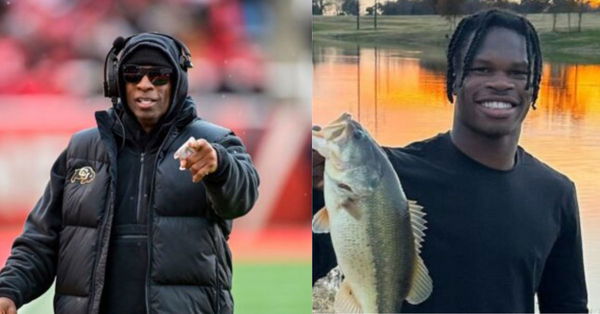How Does the Court Ruling Favor Two-Time NCAA Transfers?

Follow Us

via Imago
Credit: Imago
A potential change could be coming to the NCAA world as new rules replace the old, thanks to a West Virginia judge. On Wednesday, Judge John P. Bailey granted a temporary 14-day restraining order allowing multiple-transfer college players instant eligibility to play at least for the next two weeks.
Following the temporary restraining order, the NCAA has started to notify schools which two-time transfers can play immediately after joining their new team. But what was the reason that this new rule suddenly came into effect? It all started with West Virginia men’s basketball. See below.
A new change to the NCAA ‘year in residency’ rule
ADVERTISEMENT
Article continues below this ad
The NCAA has complied with the order from the court to allow two-time college athlete transfers to play immediately. In a recent statement, the NCAA declared their cooperation with the court’s ruling. It reads, “As a result of today’s decision impacting Division I student-athletes, the association will not enforce the year in residency requirement for multiple-time transfers and will begin notifying member schools.”

USA Today via Reuters
Dec 1, 2023; Las Vegas, NV, USA; A general overall view of Allegiant Stadium during the Pac-12 Championship game between the Washington Huskies and the Oregon Ducks. Mandatory Credit: Kirby Lee-USA TODAY Sports
This is not a permanent NCAA transfer policy change, however, as it’s only a 14-day ruling without future forecasting. They stated that the need to sit out the first year upon their transfer violated antitrust law. The change in the NCAA transfer policy applies to all college sports across the nation. Currently, this tweak in the system is comparatively beneficial for active transfers for winter college basketball.
Trending

Shedeur Sanders Becomes the “Laughing Stock” of College Football as He Ignores NFL Legend’s Advice to Target Gavin Kuld
May 18, 2024 02:10 PM EDT

Mom Randi Defends Son Patrick Mahomes as Chiefs Dragged Through Mud Due to Harrison Butker, Wanya Morris & Jason Godrick’s Controversies
May 18, 2024 05:57 PM EDT

Millionaire Best Friend Shedeur Sanders and Co. Can’t Hold Back as Travis Hunter Flaunts $120K Birthday Present From Fiancée Leanna
May 19, 2024 04:53 AM EDT

$35 Million Worth Drew Bledsoe Breaks Silence on How Much Netflix Paid Him for Tom Brady Roast
May 16, 2024 07:46 AM EDT

Colorado Star Dares Deion Sanders After Learning From Travis Hunter, Coach Brushes Him off With Assured Confidence
May 18, 2024 03:50 PM EDT
Get instantly notified of the hottest NFL stories via Google! Click on Follow Us and Tap the Blue Star.

Follow Us
What facilitated the change in the NCAA ‘year in residency’ rule?
ADVERTISEMENT
Article continues below this ad
The NCAA denial of the waiver proposed by West Virginia basketball player RaeQuan Battle seeking eligibility didn’t end well. A Montana State transfer, Battle applied for a waiver under the NCAA’s mental-health provision, but was denied in October.
And it’s not just Battle and West Virginia that are not happy with the NCAA’s transfer policy. The lawsuit was filed by the AGs of different states aside from West Virginia, including Ohio, Colorado, New York, Illinois, Tennessee, and North Carolina. Among all states, Ohio is leading this change with Ohio Attorney General Dave Yost stating that the ‘year in residency’ rule denied the waivers of at least 99 athletes to compete after their transfer.
ADVERTISEMENT
Article continues below this ad
While the new rule positively impacts Battle’s odds of participating in the Winter Games, further hearing is awaited. A second hearing will take place once the 14-day restraining order expires. Do you think this new rule would act as a boon to college athletes joining a new program? Let us know your thoughts.
WATCH THIS STORY: Coach Prime Deion Sanders’ Coaching Conundrum Deepens With Colorado Football Quality Control Analyst’s Promotion
Edited by:

Harshita

